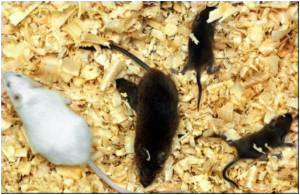A novel sperm stem-cell technique has been used by researchers at UT Southwestern Medical Center to produce genetically modified rats.

Now, UT Southwestern scientists have added another experimental research animal to the scientific stable - the rat.
They have created 35 new rat 'lines,' with each type of animal harbouring mutations in specific genes.
More than half of these mutated genes are associated with biological processes linked to human diseases, including cancer, diabetes, Alzheimer's disease, aberrant circadian rhythms and mental illness.
Dr. Kent Hamra, assistant professor of pharmacology and lead author of the study, said the ability to easily, reliably and inexpensively produce genetically modified rats offers tremendous potential for biomedical research for even small laboratories with limited resources.
For example, compared to the mouse, the rat is a larger, more intelligent animal; it is often better for biochemistry, pharmacology and physiology studies; and its behavior often is more in tune with that of humans.
"Our studies are focused on sperm-cell biology and fertility genes, but ultimately, we think other scientists will utilize these relatively simple, cost-effective techniques to generate genetically altered rats for use in experiments related to human disease," Dr. Hamra said.
One of the keys to producing the mutated rats was a novel technique Dr. Hamra and his colleagues developed five years ago to prevent rat sperm stem cells - sperm precursor cells - from differentiating, or changing, permanently into sperm.
"Getting sperm stem cells to grow in culture was a huge step. In these new experiments, we took the next step and genetically modified these precursor cells in culture, selected them for mutations and introduced the cells into the testes of a sterile male rat," Dr. Hamra said.
The animal produces genetically altered sperm, resulting in mutant offspring that can be used for biomedical research.
The study appears in the June issue of Nature Methods.
Source-ANI
RAS












